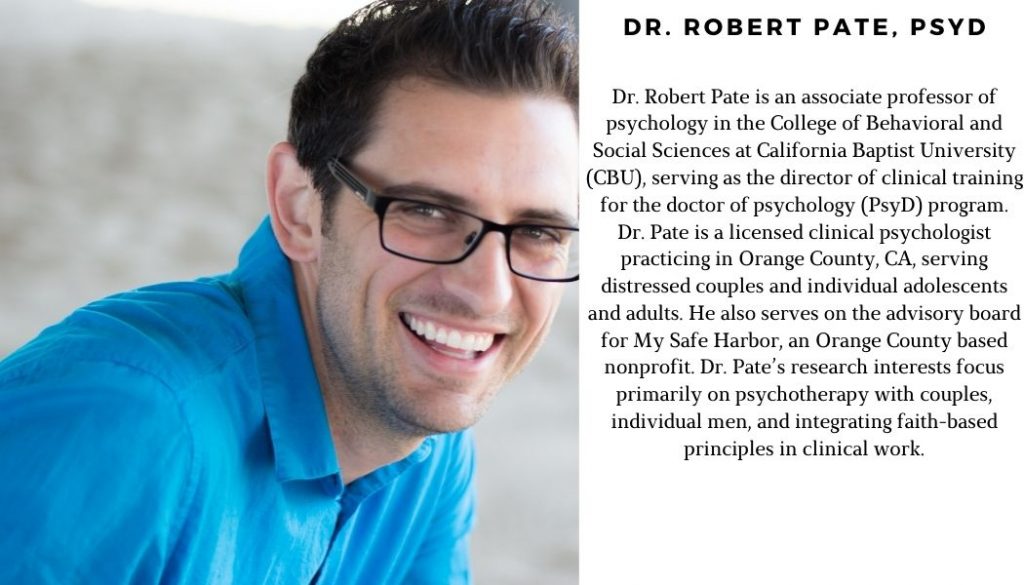As a Christian university, California Baptist University (CBU) is committed to supporting the mental health and well-being of its students and faculty members. School-based anxiety is a common issue in higher education, and it can have a significant impact on one’s academic and personal life. In part one of this blog post, we explored effective coping strategies for managing school-based anxiety among students and faculty at CBU, including identifying the source of anxiety, practicing self-care, staying organized, and seeking support.

Starting college or university is an exciting new chapter in the lives of many students. However, this transition can also be overwhelming, leading to school-based anxiety, which is becoming a common issue among students and faculty members at California Baptist University (CBU). School-based anxiety can take different forms, including fear of failure and social anxiety, and can significantly affect a student’s academic and personal life. Therefore, in this blog post, we’ll examine effective coping strategies that can help manage school-based anxiety for both students and faculty members at CBU.
For Students:
- Identify the Source of Anxiety
It’s important to identify the source of anxiety, whether it’s academic, social, or personal. Take the time to reflect on your thoughts and emotions and pinpoint what’s causing your anxiety. Once you know the source of your anxiety, you can take steps to manage it effectively.

- Practice Self-Care
Self-care is essential for managing school-based anxiety. Get enough sleep, exercise, and eat a balanced diet. Take breaks when you need to, and engage in activities that help you relax and rejuvenate. Whether it’s reading a book, taking a walk, or meditating, make time for yourself and your well-being.

- Stay Organized
One way to reduce school-based anxiety is to stay organized. Use a planner or calendar to keep track of your schedule and important deadlines. Break down large projects into smaller, more manageable tasks, and tackle them one at a time. Being organized can help you feel more in control of your workload and reduce stress.
- Seek Support
Don’t be afraid to seek support from others, whether a counselor, a trusted friend, or a faculty member. CBU has resources available, including the Counseling Center and the Wellness Center. Additionally, many professors and staff members will lend a listening ear or offer guidance when needed.

For Faculty: (Students, read on – there is more for you here too!)
- Provide a Safe and Supportive Learning Environment
Creating a safe and supportive learning environment is critical for helping students manage school-based anxiety. Be approachable and responsive to student concerns, and encourage an open dialogue. Establishing a classroom culture that is welcoming and inclusive can go a long way in reducing student anxiety.
- Be Flexible
Recognize that students have diverse needs and learning styles. Be flexible in your approach to teaching, and accommodate students’ needs as much as possible. Offering extra office hours or online office hours may help students manage their workload more effectively.

- Encourage Self-Care
Encourage students to engage in self-care and to take care of their physical and mental health. Include information about wellness resources and self-care strategies in course materials, and remind students that it’s okay to take breaks and ask for help.
- Provide Resources
CBU offers a variety of resources that can help students manage school-based anxiety, including the Counseling Center, the Wellness Center, and academic support services. Make sure students are aware of these resources and encourage them to utilize them when needed.

In conclusion, school-based anxiety is a common issue for both students and faculty members at CBU. By identifying the source of anxiety, practicing self-care, staying organized, and seeking support, students can manage their anxiety and succeed academically. Faculty members can help by creating a safe and supportive learning environment, being flexible, encouraging self-care, and providing resources to students. With these coping strategies in mind, students and faculty at CBU can work together to manage school-based anxiety and promote academic and personal success.
In part two of this blog, we’ll delve deeper into coping strategies that incorporate faith-based principles. By trusting in God’s plan, practicing gratitude, seeking support from the Christian community, practicing self-care, and remembering God’s promises, students and faculty at CBU can find peace and comfort in the midst of school-based anxiety. By working together, students and faculty members can promote a safe and supportive learning environment that fosters academic and personal success.
Share below – what is something that you need to practice more in the lists provided above?

References:



